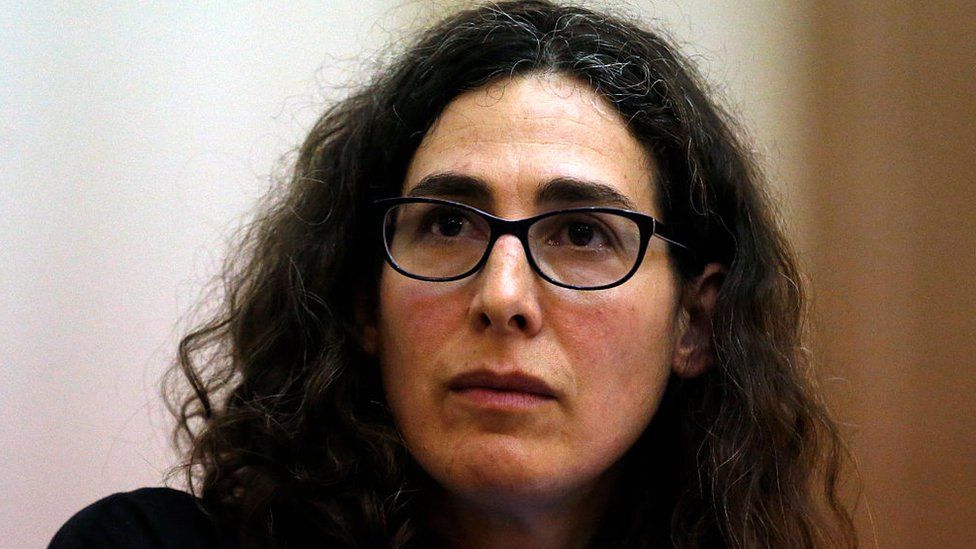Following the discovery of new DNA evidence in the case, Adnan Syed was exonerated of all charges related to the 1999 murder of his ex-girlfriend, Hae Min Lee.
The Baltimore state’s attorney’s office said a yearlong investigation revealed Syed had been wrongfully convicted of strangling and killing Lee, and that new DNA tests showed he was not involved in Lee’s death.
Syed maintained his innocence while in prison for nearly 25 years. But his case won a massive boost from an unlikely source – a podcast.
What is Serial and when did it come out?
More than a decade after Syed was sent to prison, Rabia Chaudry, a Baltimore-based lawyer and family friend of the Syeds, emailed a journalist named Sarah Koenig and asked her to re-investigate Lee’s murder.
That email helped launch the first season of the podcast Serial. The show premiered in the autumn of 2014 and each episode tried to piece together a timeline of what happened the night Lee was killed.
Who killed Hae Min Lee?
That’s the question at the heart of Serial.
“For the last year, I’ve spent every working day trying to figure out where a high school kid was for an hour after school one day in 1999,” Ms Koenig says in the first episode.
Only now, the “kids” she interviewed were adults and some of their stories had changed.
As each episode revealed new details – and potential new suspects – internet sleuths and armchair detectives sprang into action and argued their theories on social media.
Within months, the chatter around Syed’s case would ultimately help him win a new trial.
Who are the other suspects?
In an episode of Serial released after Syed’s conviction was overturned, Koenig lays out why the case was thrown out. She says his lawyers argued new evidence had emerged showing that during the original trial prosecutors failed to investigate and rule out two potential suspects who were known to detectives at the time. Syed’s lawyers also questioned the reliability of witness statements and mobile phone evidence originally used to convict him.
A judge agreed and overturned Syed’s conviction. The state’s attorney’s office later cleared Syed of all charges on the basis of that new evidence, as well as multiple rounds of DNA testing that revealed Syed’s DNA was not present on any of the victims’ clothing. “As a representative of the institution, it is my responsibility to acknowledge and apologise to the family of Hae Min Lee and Adnan Syed,” said Baltimore City State’s Attorney Marilyn Mosby.

Why was the show so popular?
Serial helped ignite the popularity of podcasts. Ms Koenig’s signature confessional style, as well as the true crime topic, kept listeners returning – and downloading – the show every week.
The first season of Serial has been downloaded more than 300m times and the show is widely cited as one of the most popular podcasts in the world.
Though subsequent seasons of the show were less popular, in many ways, Ms Koenig and her team helped create the formula for a “bingeable” podcast.
But did it really help Syed?
In 2015, Syed was granted a new trial based, in part, on new evidence uncovered while making Serial.
But a judge also denied his request for bail. He remained imprisoned for years as his legal team argued for a new trial and tried to appeal against his conviction all the way to the Supreme Court.
In 2019, HBO premiered a four-part documentary series produced by Ms Chaudry called The Case Against Adnan Syed.
The series argued that Syed, who is Muslim, was convicted, in part, because of racial bias.
It ultimately revealed that forensic analyses had found no trace of his DNA on Lee’s body at the time of the murder.
What about Lee and her family?
The Lee family refused to participate in Serial and has always maintained that they believe Syed was rightfully convicted and justice was served during the original trial.
In 2016, when Syed was granted a new trial, the family told reporters that the podcast had “reopened wounds few can imagine”, according to the Baltimore Sun. They also said they believed people had been misinformed by the podcast and regretted that “so few [were] willing to speak up for Hae”.
Before the judge ruled on Monday, Young Lee, the victim’s brother, made an emotional plea before the court on behalf of the family.
“This is not a podcast for me. This is real life – a never-ending nightmare for 20-plus years.”
What’s next?
Now that the charges against Syed have been dropped, his attorneys will begin the process to have him officially exonerated.
In Maryland, anyone who has been wrongfully convicted is also entitled to compensation for each year they were imprisoned.
Though Syed has been cleared of murder, questions still remain about who killed Hae Min Lee.
Prosecutors have indicated they have possibly identified new suspects, however, no one has been charged.
For the grieving Lee family, the decision to re-open her murder case could expose old wounds.
